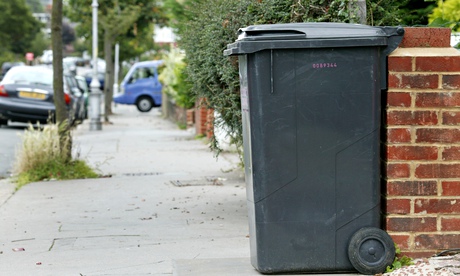
Any number of commercial courses are, of course, available, but for the amateur memoirist who is keen to make a start but short on material, there could be no better template than Littlejohn's Lost World, a book which is certain to be cherished by members of the Littlejohn family for many generations to come.
In covering the 17 blissfully uneventful years that separate his birth, on 18 January 1954, in modest but respectable Vine Gardens, Ilford, from his first job, on the Peterborough Standard, Littlejohn continually reminds the would-be autobiographer to err on the side of inclusion. One can always cut later. Or not. The Littlejohns generally had porridge for breakfast although "once in a blue moon, as a treat, we would get more expensive Weetabix or Shredded Wheat". Grandad Littlejohn's diet, more controversially, constituted "bacon and eggs for breakfast and lamb chops and boiled potatoes for dinner, what he still called 'tea'". His dad's favourite was boiled beef and carrots.
For the family historian, as the Daily Mail columnist demonstrates on every page, no detail can be too small, no achievement too slight. How, if Littlejohn did not include it here, would his descendants ever know, for instance, how his parents came by his first name (it is a long story) or that he turned down a place at boarding school (fearing homosexuality), or how he achieved a grade two in his geography O-level? This is all hugely encouraging for any writer who worries about being a bore. "One of the questions," writes our beleaguered heterosexual, "which carried enough marks to secure a pass, was worded something like: 'Describe a field survey you have carried out in a particular locality'… I pretended I'd carried out a field survey of Peterborough."
The author makes similarly ingenious use of his perfect recall to memorialise the heroes of obscure mid-20th-century children's television programmes, such as the late – and hitherto unlamented – Torchy the Battery Boy. "Torchy had a battery inside him and a button on his chest which powered a magic beam."
Admittedly, even Littlejohn's closest blood relations may be tempted to skip the part where he brings his prodigious memory to bear on refuse collection in prelapsarian Shenfield, in a memoir which could almost have been written as a corrective to Alan Johnson's dismaying, though utterly compelling, account of poverty in contemporaneous London. "We had two corrugated metal dustbins," Littlejohn records, "one for general rubbish and the other for ashes from the boiler." (Apologies, there is much more on bins if only space allowed.) But as with oral history or the contributions to Mass Observation, anecdotes that might now appear painfully humdrum are the very stuff of a book whose goal is not, surely, to entertain so much as to preserve and bear witness, until the readers have been born who will marvel at an era before the triumph of "dopey birds" (women) and their notorious vibrators, both sources of near homosexual-level consternation. "In 1951," he notes, "rampant rabbits were what my grandad shot on the allotments round the corner from Vine Gardens." There being, in the Ilford of the day, no single mothers available.
To study Littlejohn, whose day job is the excoriation of contemporary British life, is to see how the least promising-looking memory can be endowed with meaning, once contrasted with an inglorious present. Take bins, again. "Councils have managed to turn the simple business of bin collection into a complicated form of torture." Really? Even allowing for a hyperbolic manner that depicts modern children, so different from the firm-bodied Shenfield moralist, as "a pasty-faced flabby breed", and modern Essex girls as "peroxide perma-tanned slatterns"?
But in a memoir aimed squarely at his sympathisers, it is understandable if Littlejohn's account makes no sense to peers who have not regretted and may even have welcomed some of the social changes which coincided with the decline of – to mention a fraction of his complaints – crisps, prime ministers, saving, park-keeping, uniforms, Cornwall, shops, competitive sport, newspaper deliveries, gypsies, pasties, schools, peas, family doctors, teachers, the work ethic, military souvenirs, bread, conker-playing, coinage, public health and, for some reason, Caledonian Road, near ever-more-swank King's Cross, which is here demoted (should any historian be tempted to trust Littlejohn's jottings), from his Florida residence, to a "scruffy inner-city slum".
He is more accurate on the decline of stoicism, once a vital quality since, as Littlejohn says, "married couples tended to stay together regardless" and – equally approvingly – "nobody worried about drinking and driving". And yet, as his students will appreciate, any hint of stoicism could have decimated this memoir. Interminable complaining, along with the arrival of the "sewer", as Littlejohn styles modern Ilford, has made him what he is today.

